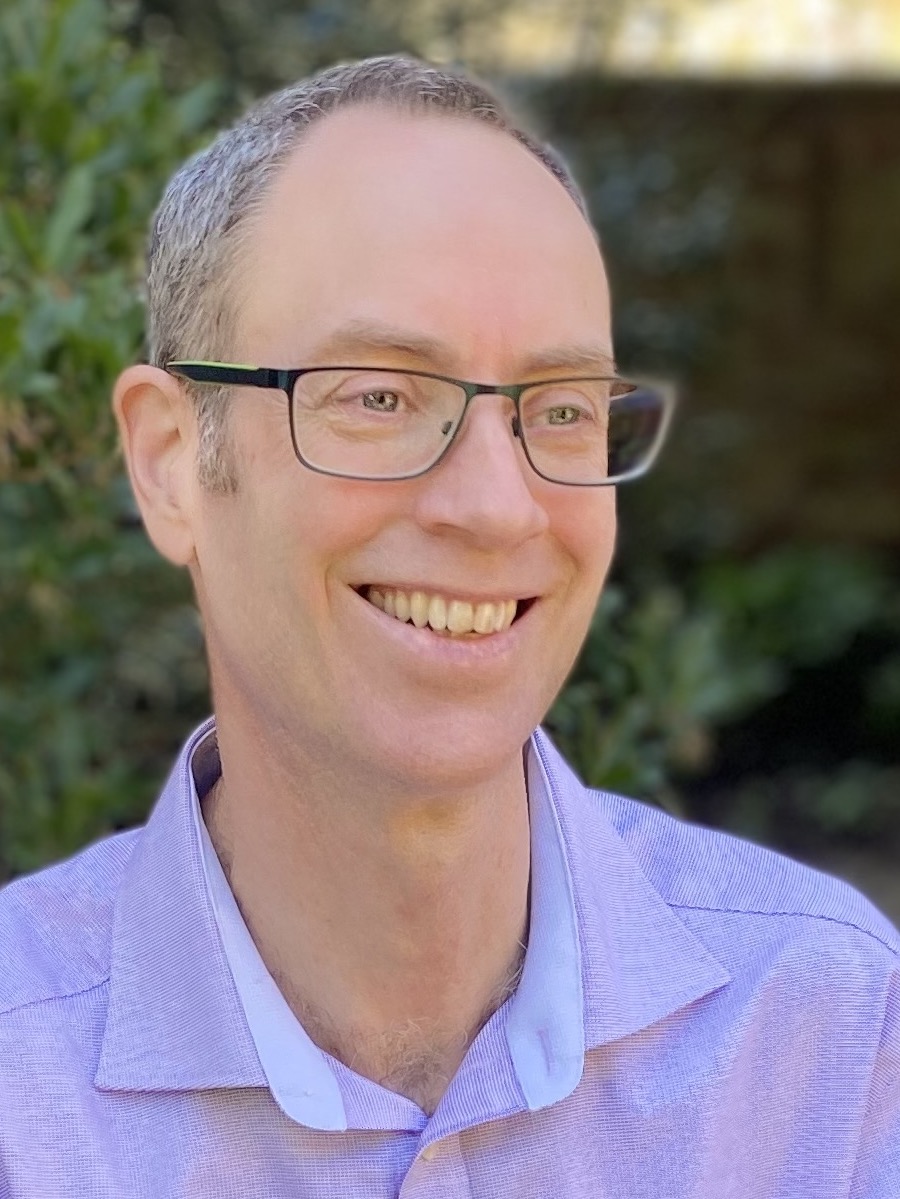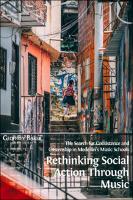Author success story
Context about the author:
Geoff Baker is Professor of Music at Royal Holloway, University of London, and Director of Research at the music charity Agrigento. He is the author of Imposing Harmony: Music and Society in Colonial Cuzco (Durham, N.C.: Duke University Press, 2008); Buena Vista in the Club: Rap, Reggaetón, and Revolution in Havana (Durham, N.C.: Duke University Press, 2011); El Sistema: Orchestrating Venezuela’s Youth (Oxford: Oxford University Press, 2014); and Rethinking Social Action through Music (Cambridge: Open Book Publishers, 2021). He made documentaries about music learning in Cuba and Venezuela (Growing into Music). He is a founding board member of SIMM (Social Impact of Making Music) and a Co-Investigator on the research project ‘Music for social impact: practitioners’ contexts, work and beliefs’.
Please provide some background information on the research project, book origin, adjacent research, and/or network enabling the book
There is a narrative of social action through music (SATM) that is familiar in the global North: the Venezuelan orchestral program El Sistema, created in 1975, exploded onto the international classical music scene in 2007 with the debut performance of the Simón Bolívar Youth Orchestra at the Proms, giving birth to a global El Sistema-inspired movement. But there is another strand to this story, which saw programs influenced by El Sistema founded in Latin America in the 1990s. One such program was the Red de Escuelas de Música de Medellín (the Network of Music Schools of Medellín), which opened in 1997 and worked hand in hand with El Sistema for its first seven years. This orchestra and band program was intended to promote peaceful coexistence in Colombia’s second city, which had gained infamy as the murder capital of the world during the heyday of Pablo Escobar’s Medellín Cartel, and it formed part of a broader strategy of urban renewal that became known as “the Medellín Miracle.” It is the focus of this book.
My previous book, El Sistema: Orchestrating Venezuela’s Youth, explored the complex and at times unsavoury realities behind the spectacular façade of SATM’s most famous program. I argued that it was time to re-evaluate El Sistema and reconsider the widespread admiration for its model. Since then, I have become increasingly interested in the question that I posed at the end of that book: might SATM work better outside of Venezuela? What might be learnt, I wondered, by studying another program of this type and comparing it to the original? In 2017-18, I spent a year carrying out fieldwork in Medellín, looking for answers.
What was/were your motivation(s) for wanting to publish this book?
I wanted to document changes taking place in a program for social development through music education in Medellín, Colombia, and to shift mindsets in the international field of Social Action Through Music.
Please give some information on the funding behind the research / book / network
The fieldwork was funded by the AHRC. Writing was supported by a sabbatical from Royal Holloway University of London and by the music charity Agrigento. The Music & Letters Trust contributed to the cost of publishing the English version, and Agrigento to the cost of the Spanish translation.
Was the book made available on your own website, or the website of any other editors or contributors, or your institution? If so, please state which.
I publicized the book on my own website, www.geoffbakermusic.co.uk
Open access success story:
What makes this book successful?
The aim of the book is to shift mindsets in an international field that is slow-moving and quite conservative. Success would mean shifting those mindsets. That is something that, even in the best-case scenario, is going to take time, and changes in thinking can be hard to observe. Still, the program at the heart of the book – the Network of Music Schools of Medellín – has told me very clearly that the book has had a big impact on their thinking and practice, and that it underpins the latest phase of their long-term process of reform. They have invited me to Medellín to give a keynote address in October 2022. To me, this current influence and desire for future collaboration constitutes success. Impact beyond this program, though, will probably take years to determine. The impact of my 2014 book is only just becoming visible.
Why did you choose to publish this book open access?
Because there is no other way that it would be widely read in Latin America, which is the centre of gravity of the Social Action Through Music field and where the largest programs are located. My previous book was widely referenced there but few people actually read it, because it was difficult to access.
Do you think that open access publication helped the book and if so, why?
I’m sure it will help the book, though it is still too early to have much evidence of that. But it hugely helped the impact on the program in Medellín. Being able to simply circulate a link among the staff meant that the book was not restricted to a handful of individuals at the top of the program but rather available to all. Similarly, I gave a number of presentations about the book – conference keynotes, invited seminars, book launches, etc. Telling listeners that the book is available for free at the click of a mouse undoubtedly makes a difference in terms of follow-up, rather than having to buy a book (which may be too difficult or expensive for many listeners in the global South). Finally, there is an advantage, at least with this topic, in making it absolutely clear that there is no profit motive for writing and promoting the book. When you write a controversial book, some people will look for any excuse to dismiss it – and ‘he’s only writing that stuff to sell books’ is one such excuse (and refusing to reward the author monetarily by buying a copy is also an excuse for not reading it). Of course, the vast majority of academic books make little or no money for the author, but most people outside academia don’t know that. The fact that an open access book is freely available is definitely an advantage in making it clear to the general public that the motivation behind the book is simply the generation and dissemination of knowledge, rather than any personal benefit.
Did your OA book show immediate success upon publication, or did the success unfold more slowly over time?
As mentioned above, success for me would be defined in terms of a shift of mindset, which is something that usually unfolds (very) slowly over time. One year after publication is much too early to see something like that. However, the evidence from Medellín does point to some fairly immediate impact on a major music program. Whether that ripples out to the wider sector remains to be seen.
If early signs of success started to show, did you try to reinforce this in an unusual or creative way?
See above.
Did open access help to reach unreachable / unknown / unexpected / new audiences? If yes, how do you know this?
It’s very hard to know who reads your work. I’m still encountering surprises with regard to my 2014 book – people who I thought would have avoided or disliked it, or who I assumed had never heard of it, appearing seven or eight years later to tell me that they got a lot out of it. I expect it could take a decade before I can really answer this question.
Did open access make new connections / follow-up possible?
Follow-up, yes – in the case of Medellín. The accessibility of the book undeniably opened up the space for dialogue later this year. In other cases, at least so far, it’s not that open access made new connections, but rather that open access allowed that connection to take on a different character. For example, it’s one thing to be invited to give a book launch in Chile or South Africa – it’s another thing to be able to ‘give’ the book to everyone who attends (and even those who don’t). Of course, what people do with that opportunity (do they go away and download the book, read it, and change their thinking?) is very hard to gauge.
Is there any long tail (awareness, citations, downloads) of this book that you consider would (most likely) not have happened with print sales only or toll-access?
It’s too early to tell – the book hasn’t even been reviewed yet in academic publications, so it’s premature to be talking about a long tail.
How do you think academia can benefit from your book being OA?
I think that academia in Latin America (and the global South more broadly) can definitely benefit. My previous book provoked interest but it was hard to get hold of. The response from Latin American scholars to the new book being open access has been very positive. More equitable distribution of knowledge is an important issue there.
How do you think society at large can benefit from your book being OA?
It’s potentially a chain of influence. I study programs that aim to use music education to have a positive influence on society. My book is intended to offer constructive criticism of the dominant model and thereby to facilitate its improvement – to increase the social benefit of such work. My book being open access increases its potential readership and therefore impact. So in the best-case scenario, and over a period of many years, my book being open access could benefit society.

This article is made available under a Creative Commons Attribution 4.0 International License.


